Bawd/Bard
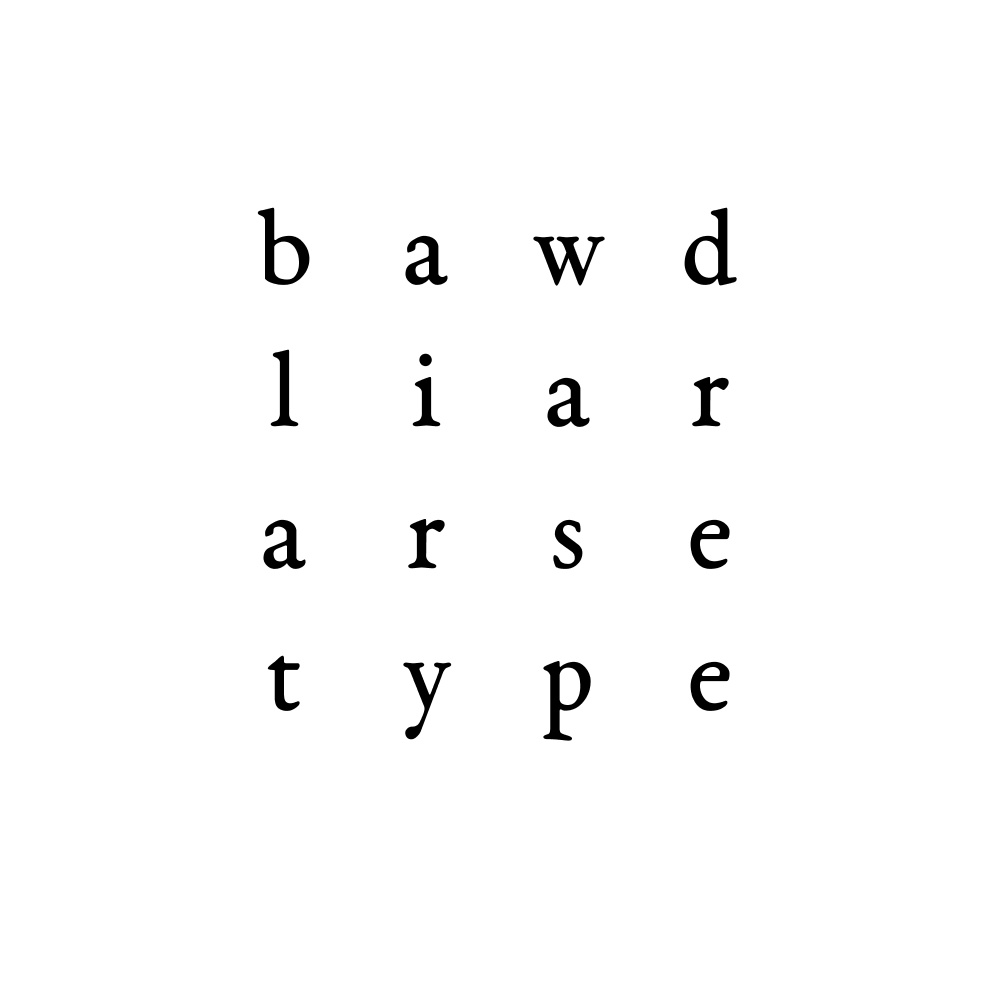
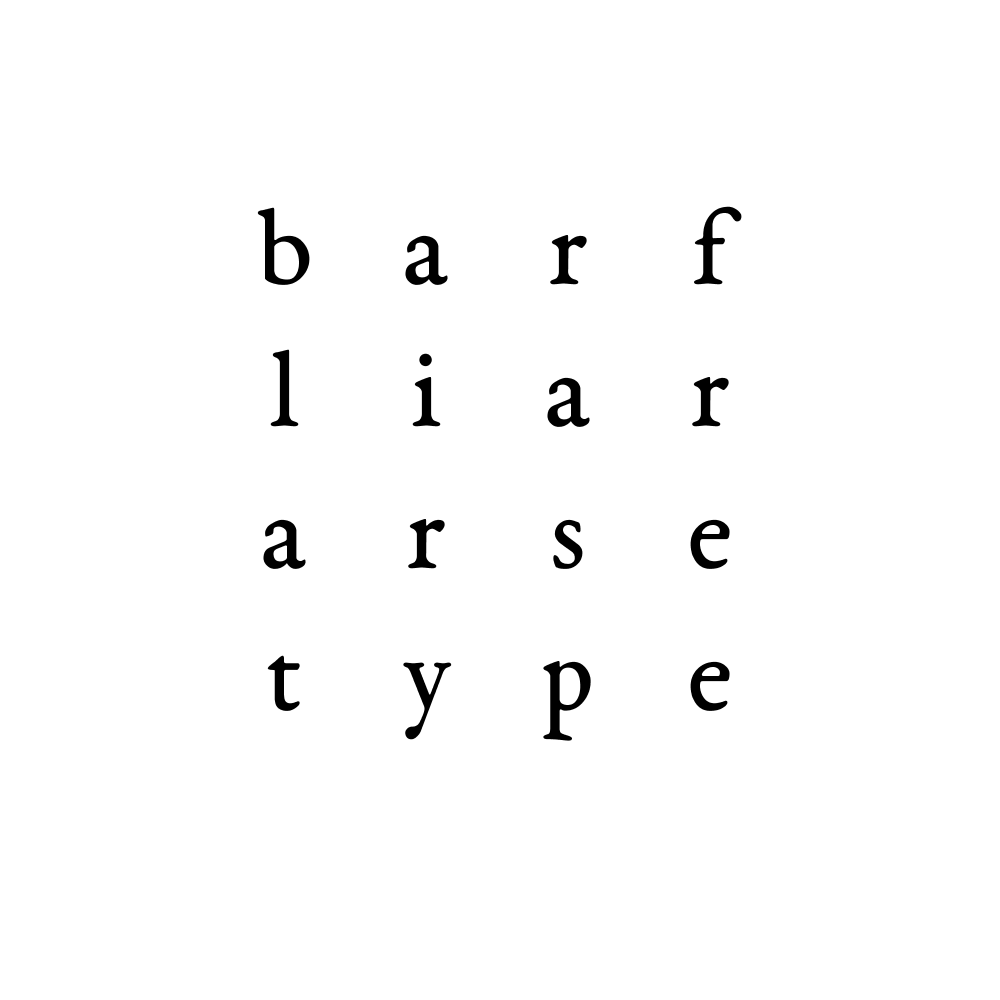
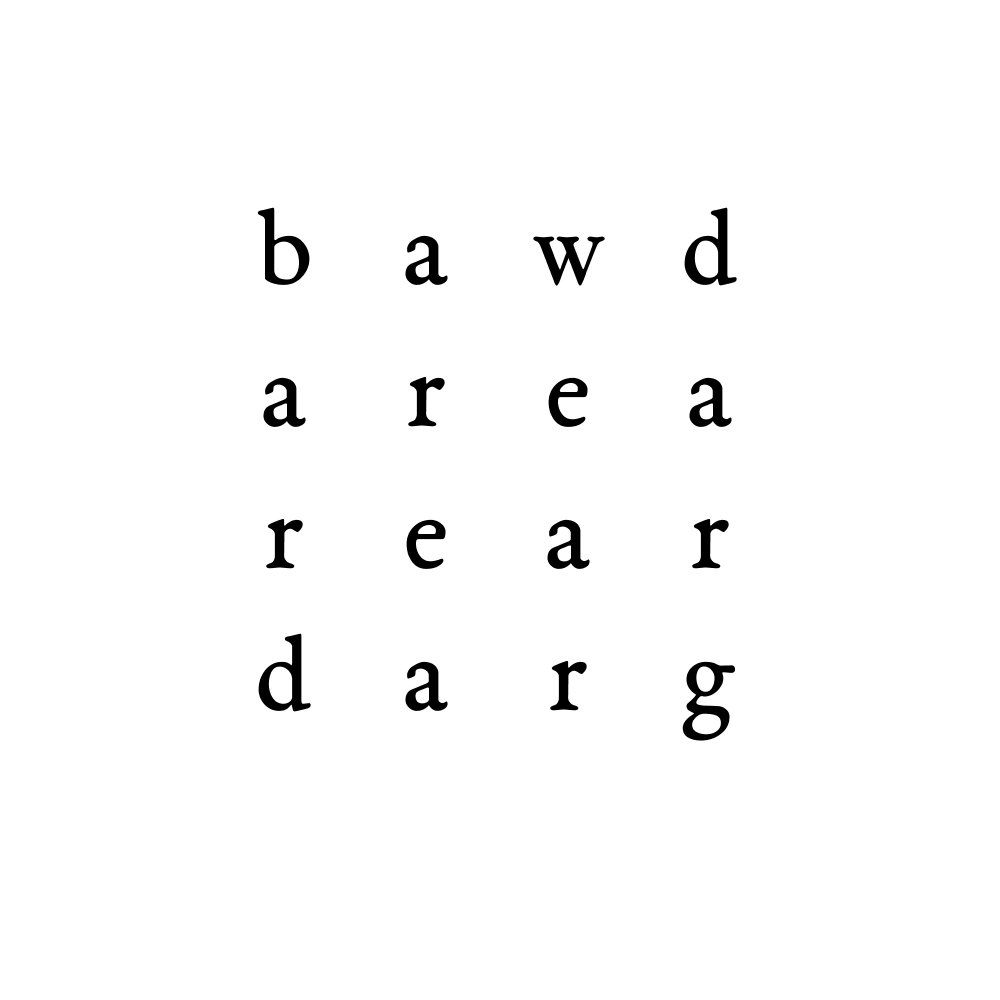
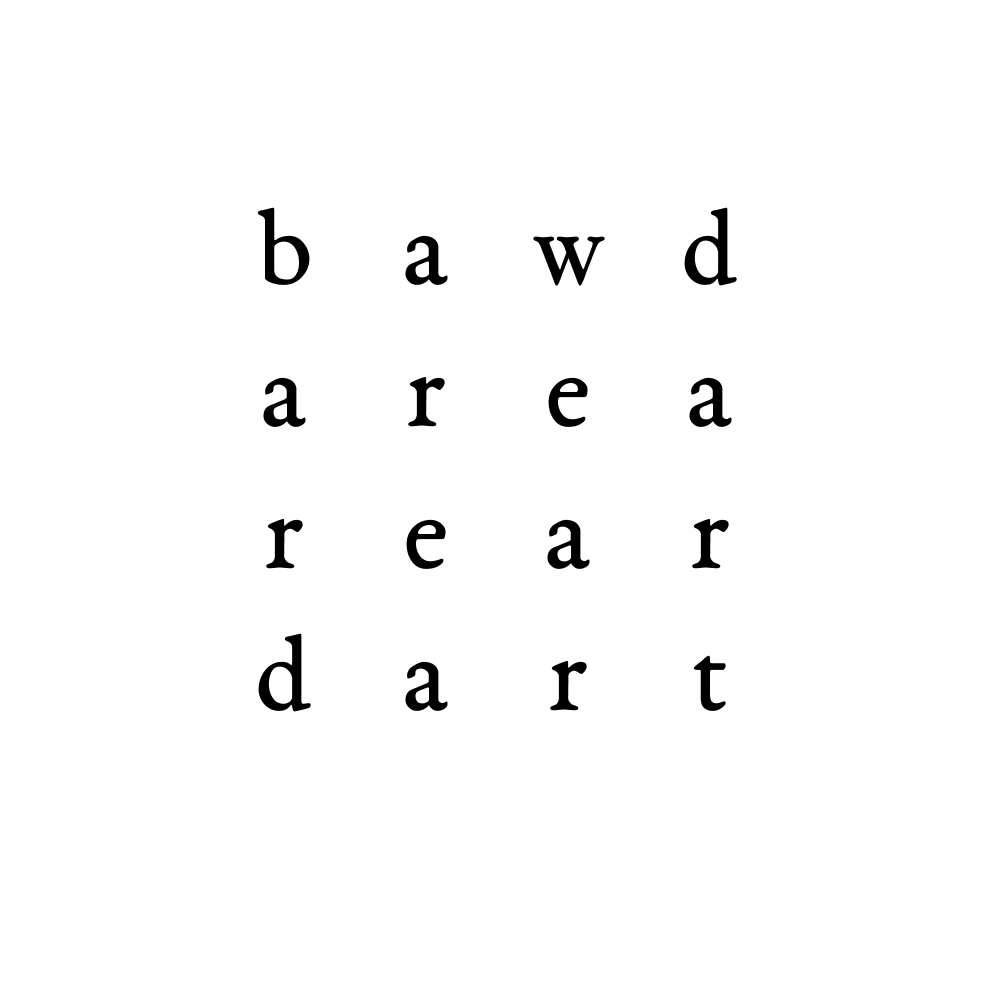
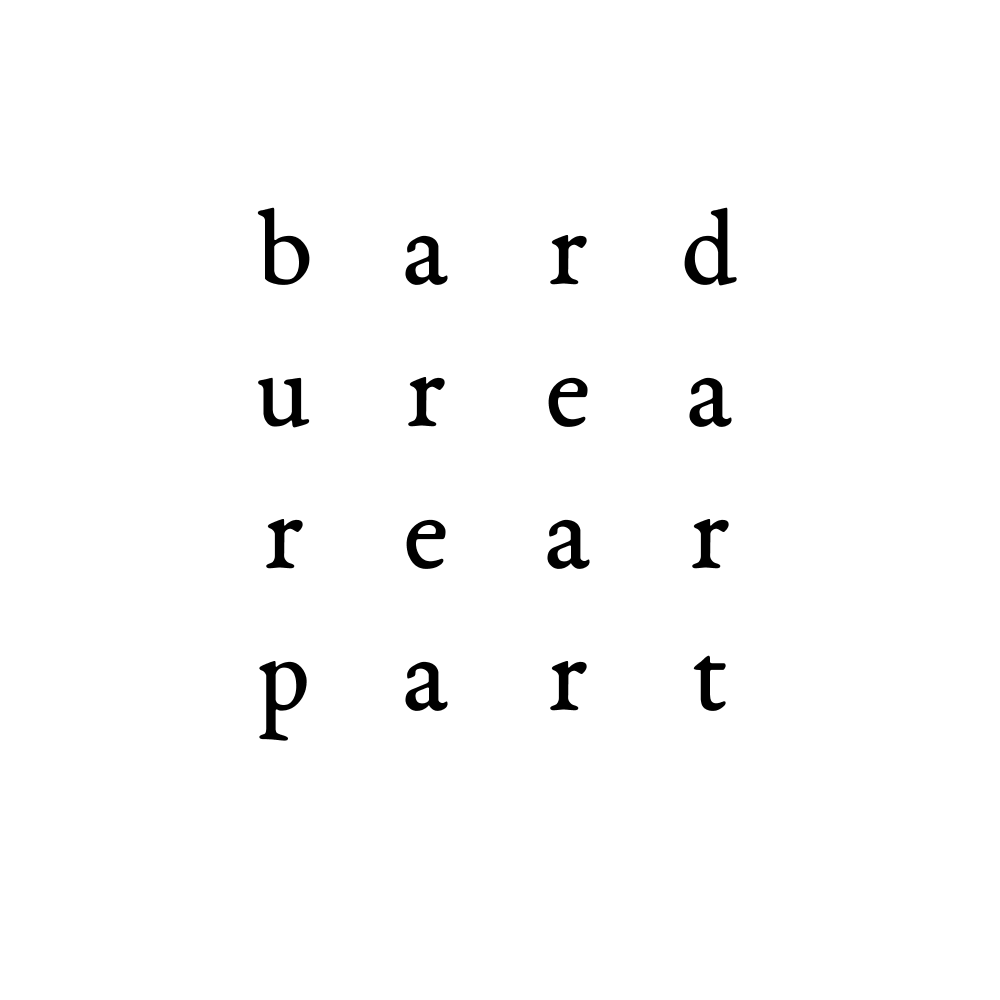
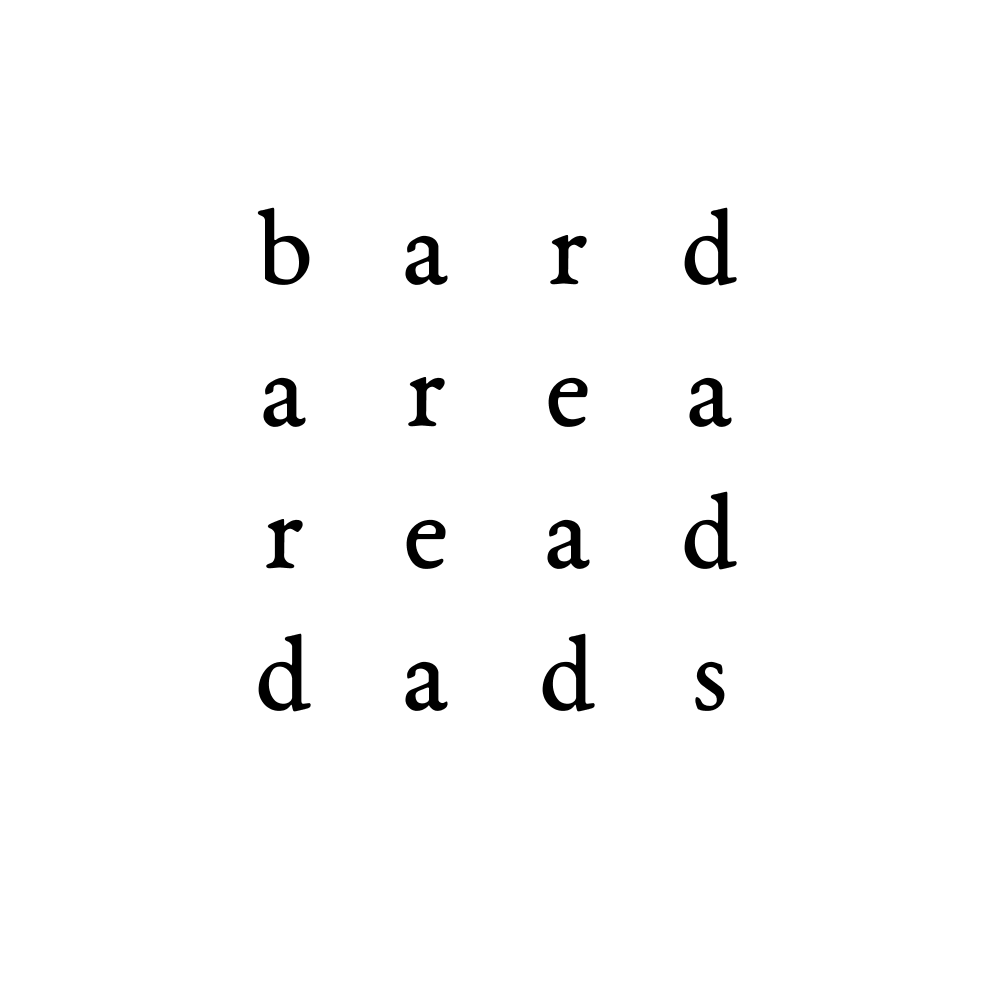
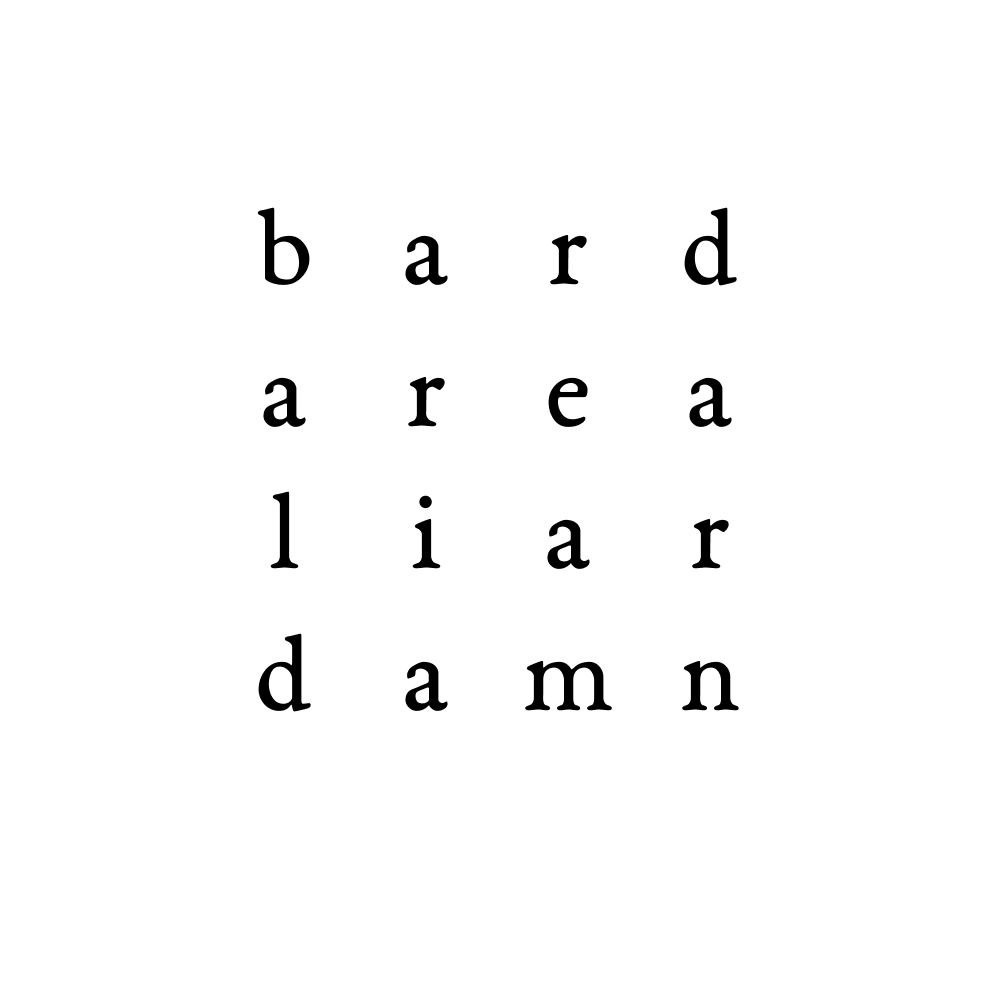
Composed with words from litscape. Including diagonals.
Blat: n. “A bleating or shrill sound.” and as v. “ intr. To bleat, or make similar sounds. Also fig., to talk noisily or impulsively.” or “A newspaper.” (OED)
Bise: n. “A keen dry N. or NNE. wind, prevalent in Switzerland and the neighbouring parts of France, Germany, and Italy.” (OED)
Dree: v. “To endure, undergo, suffer, bear (something burdensome, grievous, or painful).”, and also as n. “The action of the verb dree v.; suffering, grief, trouble. (Mostly a modern archaism.)” (OED)
Barf: v. “ intr. To vomit or retch. Occasionally trans. (also with up).” and as n. “An attack of vomiting; vomit, sick; also int., a coarse exclamation of disgust.” (OED)
Rasp: n. “A type of coarse file having many projections or teeth on its surface; (also) any similar tool used for scraping, filing, or rubbing down.” and v. “trans. To grate, file, or scrape with a rasp or other rough instrument.” (OED)
Darg: n. “A day’s work, the task of a day; also, a defined quantity or amount of work, or of the product of work, done in a certain time or at a certain rate of payment; a task.” (OED)
Urea: n. “A soluble crystalline compound, forming an organic constituent of the urine in mammalia, birds, and some reptiles, and also found in the blood, milk, etc.; carbamide, CO(NH2)2.” (OED)
Deid: adj. Scottish for dead. (OED)
Bran: “ The husk of wheat, barley, oats, or other grain, separated from the flour after grinding; in technical use, the coarsest portion of the ground husk” or “ Sort, class, quality. Obsolete.” (OED)